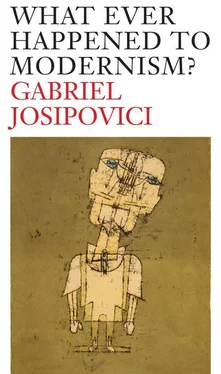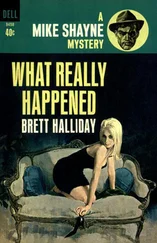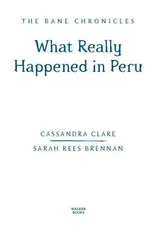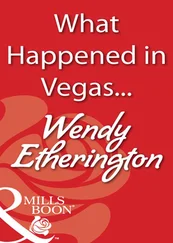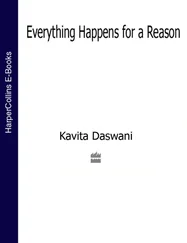Reading Barnes, like reading so many of the other English writers of his generation, Martin Amis, Ian McEwan, Blake Morrison, or a critic from an older generation who belongs with them, John Carey, leaves me feeling that I and the world have been made smaller and meaner. Ah, they will say, but that is just what we wanted, to free you of your illusions. But I don't believe them. I don't buy into their view of life. The irony which at first made one smile, the precision of language, which was at first so satisfying, the cynicism, which at first was used only to puncture pretension, in the end come to seem like a terrible constriction, a fear of opening oneself up to the world. It is sad to see this has infected a writer from the next generation like Adam Thirlwell. All of them ultimately come out of Philip Larkin's overcoat, and clearly their brand of writing and the nature of their vision speaks to the English, for they are among the most successful writers of their generation. I wonder, though, where it came from, this petty-bourgeois uptightness, this terror of not being in control, this schoolboy desire to boast and to shock. We don't find it in Irish or American culture, or in French or German or Italian culture. The English have always been both sentimental and ironical, but there was never that sense of prep-school boys showing off, which is the taste these writers leave on my tongue.
How has it come about? I would venture three points. ‘Like most Victorian novelists’, writes John Bayley, ‘[Dickens'] sense of other places and people was founded on fear and distrust. The Boz of the Sketches seems to hate and fear almost everything even though it fascinates him.’ But this is something that antedates the Victorians. As Linda Colley has shown in her fine book, Britons , from the early eighteenth century on Britons defined themselves in opposition to others, in particular to the large, aggressive Popish nations of Spain and France: Britons are different; Britons never will be slaves, to other nations or to the ideas of other nations. To this must be added the fact that England was just about the only European country not to be overrun by enemy forces during the Second World War, which was a blessing for it, but which has left it strangely innocent and thrown it into the arms, culturally as well as politically, of the even more innocent United States. This has turned a robust pragmatic tradition, always suspicious of the things of the mind, into a philistine one. Though there is something appealing in the resolute determination not to be taken in evinced by Larkin and Amis in the face of European Modernism, something that reminds me of the Just William books I so enjoyed as a child, it soon begins to pall. Taken as a cultural rallying-cry it is little short of disastrous.
Second, and paradoxically, ours is an age which, while being deeply suspicious of the ‘pretentious’, worships the serious and the ‘profound’, so that large novels about massacres in Rwanda or Bosnia, or historical novels with a ‘majestic sweep’, are automatically considered more worthy of attention than the novels of, say, P.G. Wodehouse or Robert Pinget.
Finally, ours is the first generation in which High Art and Fashion have married in a spirit joyously welcomed by both parties. When the speakers at major literary festivals are for the most part politicians, television personalities or foreign correspondents; when we are enjoined to buy three books for the price of two in our major bookshops and a serious newspaper like the Independent offers its readers the chance, as a Christmas bonanza, to gatecrash a book launch of their choice with one of the paper's literary critics, we have truly arrived at an age where art and showbiz are one and the same.
In his delightful novel, Rates of Exchange , Malcolm Bradbury touches on the first of my points when he has his East European magical realist femme fatale , Katya Princip, explain his own history to the bemused British Council lecturer, Dr Petworth:
Oh, Mr. Petwit, I have told you. You are really not a character in the world historical sense. You come from a little island with water all round. When we were oppressed and occupied and when we fought and died, and there were mad mullahs and pogroms against the Jews, what did you have? Queen Victoria and industrial revolution and Alfred Lord Tennyson. We sent Karl Marx to explain everything, but you didn't notice. What did you do with him? Put him in Highgate cemetery, some would say the best place, I know. You never had history, just some customs.
This is so brilliant because it is at the same time an acute assessment of how England relates to Europe, a sending up of what ‘Europe’ in this equation stands for, and a covert thumbs up to traditional English ways. For who, reading this, would not opt for customs rather than history, for Queen Victoria and Alfred Lord Tennyson rather than mad mullahs and pogroms? But is that really the choice? You cannot escape from history with a few comic phrases. As historians, not all Marxist, have been pointing out for rather a long time now, naturally Britain has had a history, but it has preferred to ignore that history. Perhaps the best one can say is that it has had the luxury of not having that history thrust upon it as most of the European nations have.
So many English novelists today confess to wanting to write like Dickens that it might be thought that the difference between England and France and Germany is that we have no great model to look back to, who might give us an understanding of what it might mean to have a European sensibility, that is, to be as English as they come and yet have a real historical awareness. But there is one, as I have suggested: Wordsworth. Unfortunately within English culture he has been consistently misrepresented as either a bucolic poet or a political reactionary. This is a travesty. He occupies the same place in English literary history as, say, Hölderlin and Baudelaire occupy in German and French: someone with all the powers of the Romantic poet at his fingertips but aware of the deep paradoxes of his calling in an age when art itself is in question. Wordsworth, James, Eliot and Virginia Woolf all flourished on these shores. We need to go back and try to understand what they were up to as writers , not dismiss them as reactionaries or misogynists, or adulate them as gay or feminist icons.
Naturally I think the story I have just finished telling is the true one. At the same time I recognise that there are many stories and that there is no such thing as
the
true story, only more or less plausible explanations, stories that take more or less account of the facts. I am aware too that these stories are
sites of contestation
; more is at stake than how we view the past. That is what is wrong with positivist accounts of Modernism, which purport simply to ‘tell the story’, like Peter Gay's
Modernism
These make a show of impartiality but are of course just as partial as any other account.
What I characterised at the start as the prevalent English view, epitomised by Waugh, Larkin and Amis, that Modernism was just a blip in the serene history of the arts, might appear at first sight to be not very different from Gay's position, but it is in fact profoundly different, for it is deeply polemical, even if the polemic is fuelled by anxiety rather than anything else. A slightly more sophisticated version of this is the one espoused by those I have just called, borrowing the term from T.J. Clark, the false friends of Modernism. This sees Modernism, in a very English way, as a Good Thing because it debunks Romanticism and idealism. Modernism, according to this story, is the equivalent of Realism, a view which allows those who espouse it to feel both that they are in the vanguard and that they are upholding essential English values.
Читать дальше
